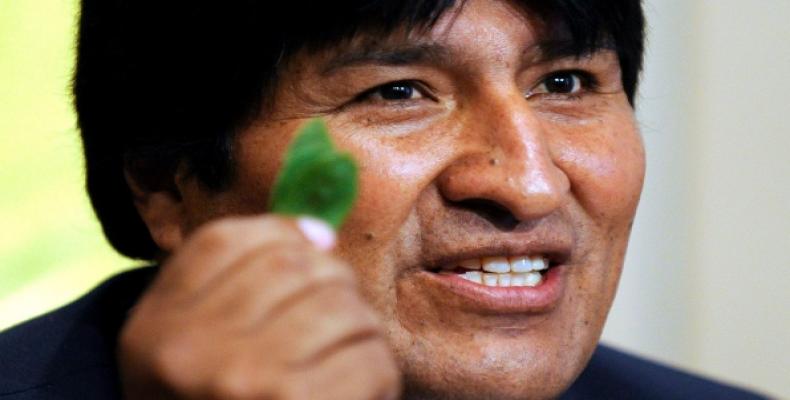La Paz, August 21 (teleSUR-RHC)-- While the United Nations Office of Drugs and Crime has praised for a long time the steady decrease of coca growing in the Andean country, a report released Monday confirmed this trend was mainly the result of the progressive policies implemented under Evo Morales' presidency.
“Economic development, cooperation with coca-growing communities, and respect for human rights have been the main drivers of these consistent reductions,” found the joint report issued by the Washington Office on Latin America (WOLA) and the Andean Information Network (AIN).
Morales' policy contrasted with the militarized approach of eradication imposed by the United States – via aerial fumigations for instance. Instead, his government developed cooperation with coca-growing communities, recognizing the traditional use of the coca leaf in the Andean culture, and allowing farmers to grow a measured plot of land of the ancestral plant (1,600-2,500 square meters) while finding sustainable alternatives to cocoa cultivation. Local coca growers’ unions also have actively cooperated with government officials to ensure compliance with the ratio agreement.
As a result, coca cultivation in Bolivia has dropped 34 percent from 2010 to 2014 for the fourth consecutive year, recognized the UNODC in a recent report.
“This experience holds key lessons for Peru and Colombia, the two leading global coca producers, which continue to use forced eradication campaigns despite the harm they cause and their ineffectiveness at ensuring lasting coca reductions,” added the report.
“Bolivia’s successes send a clear message: forced eradication of coca is neither effective nor just, and leads only to cycles of poverty and human rights violations —not sustained reductions in coca cultivation,” said Coletta A. Youngers, a Senior Fellow at WOLA and co-author of the report.


